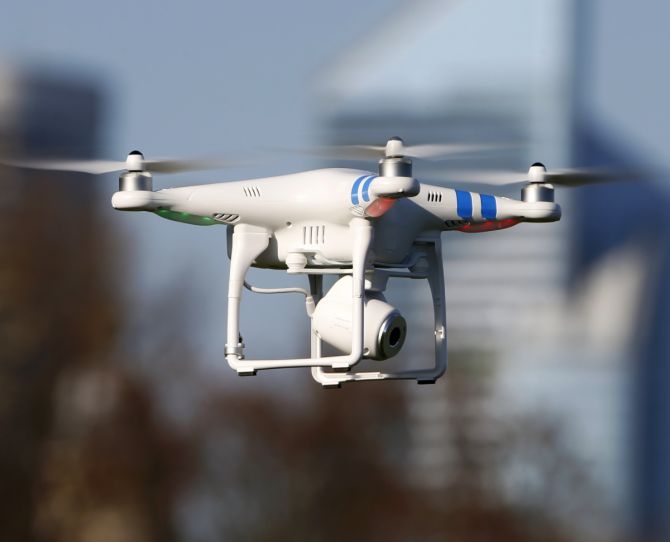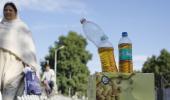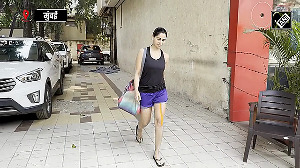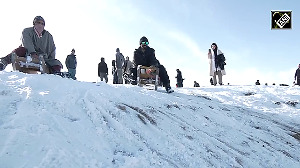Five years after Chief Minister Nitish Kumar imposed total prohibition in Bihar, the liquor mafia continues to thrive, reports MI Khan.

As the illicit liquor trade flourishes in dry Bihar and with the state government unable to control it, the Bihar police has resorted to the use of hi-tech drones to crack down on the manufacture, distribution and storage of liquor by the powerful “sharaab mafia” (liquor mafia).
With hardly a day passing without reports of seizure of illicit liquor consignment, even attacks on teams during raids against the liquor mafia in the state, the police plan to take the help of drones to monitor the activities of the liquor mafia.
"Police will keep an eye on the illicit liquor trade by using drones. It will come in handy to check the illicit liquor trade in far-flung and remote areas,” said a senior police officer at the Bihar police headquarters in Patna.
According to police officials, the prohibition unit of the state police has demanded drones to get accurate and timely information in order to action against the liquor mafia.
The government has approved the proposal and the police will initially purchase five or six drones. Each drone will cost Rs 5 lakh.
The drone will fly up to five kilometres and cover a large area with a high-resolution camera and pinpoint the location using GPS.
This will enable the police to monitor remote locations, deserted riverine beds and forest areas and take action against the liquor mafia.
The use of hi-tech drones was mooted following Chief Minister Nitish Kumar’s directive to take action against the liquor mafia, identify their manufacturing units, distribution or supply centres and their illegal operation.
"Drones will certainly provide us solid information about the illicit liquor trade, activities of the liquor mafia in time and will help in the search of manufacturing units," a senior police official said.
Drones will be employed in specific areas to ensure action against the illicit liquor trade as well as the liquor mafia, who had managed to escape from the clutches of the police in the past due to the delay in getting proper information in time, the police said.
In the last three weeks, a huge quantity of illicit liquor has been seized. It was revealed during raids on the liquor mafia and their manufacturing units in Patna and other districts that they were operating easily and smoothly, taking advantage of the laxity of the police.
A small-time illicit liquor trader, Sambhu Kumar, said the deployment of drones to keep tabs on liquor trade will not make much difference as local police officials are being paid to run the business and to alert them ahead of the action.
"We are doing illicit liquor trade thanks to the police as we pay some percentage of our profits to them. Drones will be of no use unless the police works honestly and perform its duty,” he said.
With liquor easily available in every nook and corner of dry Bihar and the illicit liquor trade growing day by day, people say that “sharaab bandi” (liquor ban) is only on paper.
Earlier, liquor was sold in shops but now it is supplied in the black market and delivered at home on demand.
"The liquor mafia has changed their business rules and adopted new and innovative methods to smuggle in liquor, supply it and manage the illicit trade," Ranjeev, an activist, said.
The official data from the police revealed that more than 1.22 lakh litres of liquor, including Indian made foreign liquor (IMFL), spirit and country-made liquor, have been seized or recovered in the state in the last 82 days of this year.
IMFL is mainly being smuggled in from the neighbouring states of Uttar Pradesh, Jharkhand, West Bengal and even Haryana, Punjab and neighbouring Nepal.
Locally, country-made liquor is manufactured on a large scale.
"In rural areas, country-made liquor has become a cottage industry given its high profits," an excise department official said.
In the last 10 days, several consignments of liquor were seized from different parts of the state.
Police officials said the high quantity of liquor seized is because of the high demand for booze during Holi festival.
Deputy excise commissioner Krishna Paswan said that nearly 1900 people who were involved in illicit liquor trade have been arrested so far this year following the chief minister's directive to take action against the liquor mafia.
Despite a failed liquor ban, Chief Minister Nitish Kumar has time and again reiterated stringent action against bootleggers and directed the state’s top police officials to identify those engaged in the sale and consumption of liquor.
Opposition leaders have repeatedly targeted Nitish Kumar for his failure to implement liquor prohibition in the state.
Much to the embarrassment of Nitish Kumar, his own ruling ally BJP's leaders have also raised the failure of liquor prohibition from time to time.
The Patna high court has also questioned the implementation of liquor ban in the state on several occasions and pointed to the nexus between the police and liquor mafia.
Total prohibition was imposed in Bihar in the first week of April 2016, nearly five years ago.
Since the, more than 2.55 lakh cases of violation have been registered, more than 95 lakh litres of IMFL and more than 52 lakh litres of country-made liquor seized.
Till date 3,39,800 people have been arrested of whom 480 have been convicted by the courts.
Feature Presentation: Rajesh Alva/Rediff.com











 © 2025
© 2025